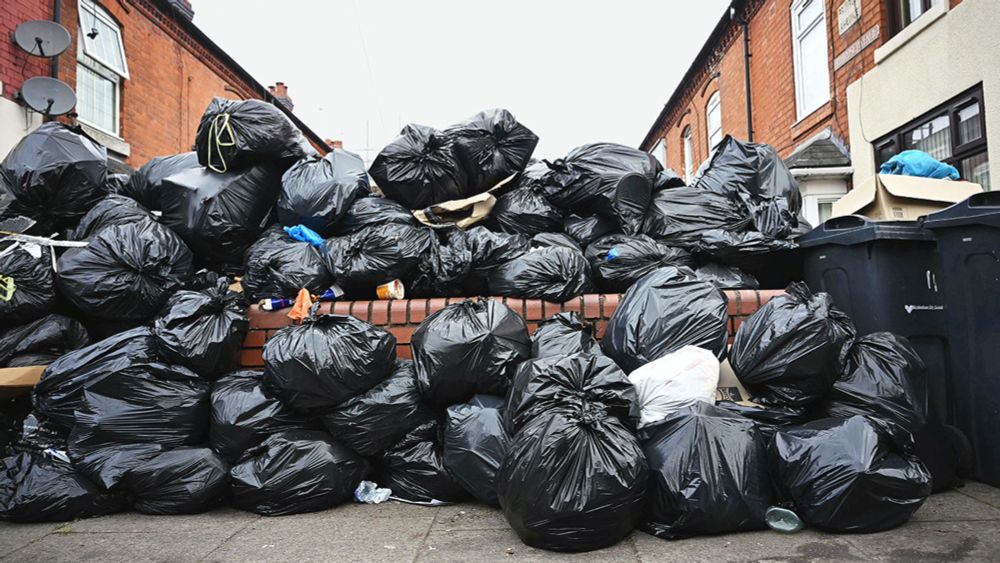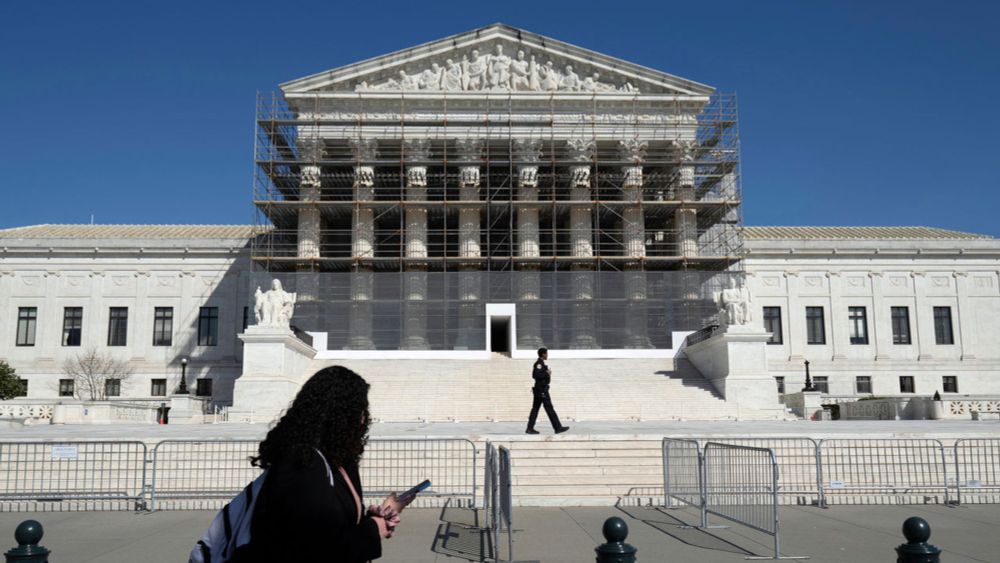Henry Curr
@curr.bsky.social
Economics editor @TheEconomist. Visiting Fellow of Nuffield College, Oxford. Views mine only. www.henrycurr.com
A withering critique of British energy policy by Dieter Helm.
"Britain is not going to have cheap energy any time soon – unless there is radical policy action."
dieterhelm.co.uk/energy-clima...
"Britain is not going to have cheap energy any time soon – unless there is radical policy action."
dieterhelm.co.uk/energy-clima...

British energy policy – not cheap, not home-grown and not secure - Dieter Helm
Some people – and some politicians – seem to believe that if you keep repeating claims eventually they will be believed, even as the evidence unfolds that they are obviously just not true. Any counter...
dieterhelm.co.uk
November 4, 2025 at 8:57 AM
A withering critique of British energy policy by Dieter Helm.
"Britain is not going to have cheap energy any time soon – unless there is radical policy action."
dieterhelm.co.uk/energy-clima...
"Britain is not going to have cheap energy any time soon – unless there is radical policy action."
dieterhelm.co.uk/energy-clima...
Reposted by Henry Curr
The question on everyone’s mind in the market is ‘will the government actually cut spending if it gets a negative fiscal shock’ and the revealed behaviour is that western governments find this extraordinarily hard to do.
October 23, 2025 at 8:40 AM
The question on everyone’s mind in the market is ‘will the government actually cut spending if it gets a negative fiscal shock’ and the revealed behaviour is that western governments find this extraordinarily hard to do.
In taking a passing shot at my special report, @sjwrenlewis.bsky.social offers a confusing set of opinions. He writes both that "we have a fiscal problem in the US" *and* that talking about the UK facing a fiscal crisis is "silly".
October 24, 2025 at 9:04 AM
In taking a passing shot at my special report, @sjwrenlewis.bsky.social offers a confusing set of opinions. He writes both that "we have a fiscal problem in the US" *and* that talking about the UK facing a fiscal crisis is "silly".
Reposted by Henry Curr
This discussion turned increasingly interesting by every reply~
"Stop worrying about public debt" says @martinsandbu.ft.com, citing US gross federal interest payments / GDP as being in the middle of the historical range.
But that measure includes interest the govt pays to itself.
Net interest / GDP is near historical highs. And then look at the forecast...
But that measure includes interest the govt pays to itself.
Net interest / GDP is near historical highs. And then look at the forecast...

October 23, 2025 at 6:44 PM
This discussion turned increasingly interesting by every reply~
"Stop worrying about public debt" says @martinsandbu.ft.com, citing US gross federal interest payments / GDP as being in the middle of the historical range.
But that measure includes interest the govt pays to itself.
Net interest / GDP is near historical highs. And then look at the forecast...
But that measure includes interest the govt pays to itself.
Net interest / GDP is near historical highs. And then look at the forecast...

October 23, 2025 at 11:20 AM
"Stop worrying about public debt" says @martinsandbu.ft.com, citing US gross federal interest payments / GDP as being in the middle of the historical range.
But that measure includes interest the govt pays to itself.
Net interest / GDP is near historical highs. And then look at the forecast...
But that measure includes interest the govt pays to itself.
Net interest / GDP is near historical highs. And then look at the forecast...
Britain should raise not cut the cash ISA limit. There is no good economic argument for taxing the normal return to savings.
To quote the Mirrlees review: "by taxing the normal return to savings, we are not taxing the better-off; we are taxing those who spend their money tomorrow rather than today"
To quote the Mirrlees review: "by taxing the normal return to savings, we are not taxing the better-off; we are taxing those who spend their money tomorrow rather than today"
October 16, 2025 at 8:56 AM
Britain should raise not cut the cash ISA limit. There is no good economic argument for taxing the normal return to savings.
To quote the Mirrlees review: "by taxing the normal return to savings, we are not taxing the better-off; we are taxing those who spend their money tomorrow rather than today"
To quote the Mirrlees review: "by taxing the normal return to savings, we are not taxing the better-off; we are taxing those who spend their money tomorrow rather than today"
The Labour government is led by technocrats with a working majority of 157 in Parliament. It has forgiving budget rules and as long as four years until the next election. If it cannot put the budget on a sound footing, then who will?
www.economist.com/leaders/2025...
www.economist.com/leaders/2025...

Britain is slowly going bust
Even with a huge majority and plenty of time, Labour is drifting towards a fiscal crisis
www.economist.com
September 25, 2025 at 12:00 PM
The Labour government is led by technocrats with a working majority of 157 in Parliament. It has forgiving budget rules and as long as four years until the next election. If it cannot put the budget on a sound footing, then who will?
www.economist.com/leaders/2025...
www.economist.com/leaders/2025...
I reported this week's Money Talks podcast from the mountain, lake and lodge at Jackson Hole. Featuring Kristin Forbes, @jonsteinsson.bsky.social , Barry Eichengreen and - at 10,000ft - @laura-veldkamp.bsky.social
Listen to my Jackson Hole audio diary:
www.economist.com/podcasts/202...
Listen to my Jackson Hole audio diary:
www.economist.com/podcasts/202...

Gone fishing: our economics editor’s Jackson Hole diary
Our podcast on markets, the economy and business. This week, how Donald Trump’s fight with the Fed escalated in a usually quiet corner of Wyoming
www.economist.com
August 28, 2025 at 5:17 PM
I reported this week's Money Talks podcast from the mountain, lake and lodge at Jackson Hole. Featuring Kristin Forbes, @jonsteinsson.bsky.social , Barry Eichengreen and - at 10,000ft - @laura-veldkamp.bsky.social
Listen to my Jackson Hole audio diary:
www.economist.com/podcasts/202...
Listen to my Jackson Hole audio diary:
www.economist.com/podcasts/202...
While central bankers debated the technicalities of monetary-policy credibility at Jackson Hole, the Trump administration stood ready to bludgeon the idea
My column from the conference:
www.economist.com/finance-and-...
My column from the conference:
www.economist.com/finance-and-...

Trump’s interest-rate crusade will be self-defeating
The president’s threats loomed over this year’s Jackson Hole conference
www.economist.com
August 25, 2025 at 7:41 PM
While central bankers debated the technicalities of monetary-policy credibility at Jackson Hole, the Trump administration stood ready to bludgeon the idea
My column from the conference:
www.economist.com/finance-and-...
My column from the conference:
www.economist.com/finance-and-...
Absurd laws saying Britain's employers must pay equal amounts to workers doing jobs judges deem to be of "equal value" have made central planners of the judiciary and left rubbish piled high on Birmingham's streets. Scrap them
www.economist.com/britain/2025...
www.economist.com/britain/2025...

Birmingham’s bin strikes reveal local problems—and a national one
Rubbish policy and rubbish on the streets
www.economist.com
April 17, 2025 at 8:28 AM
Absurd laws saying Britain's employers must pay equal amounts to workers doing jobs judges deem to be of "equal value" have made central planners of the judiciary and left rubbish piled high on Birmingham's streets. Scrap them
www.economist.com/britain/2025...
www.economist.com/britain/2025...
Trade deficits just don’t measure what President Trump thinks they do. Why the tariffs are among the most profound and harmful economic policy mistakes of the modern era ⬇️
April 6, 2025 at 11:53 AM
Trade deficits just don’t measure what President Trump thinks they do. Why the tariffs are among the most profound and harmful economic policy mistakes of the modern era ⬇️
Could the “major questions doctrine”--a conservative legal theory used to stop Biden's student loan forgiveness--bring down the tariffs?
"The pool of potential plaintiffs to take this fight to the courts is vast."
www.economist.com/united-state...
"The pool of potential plaintiffs to take this fight to the courts is vast."
www.economist.com/united-state...

How Donald Trump’s tariffs will probably fare in court
The president has drawn fire from some conservative legal scholars
www.economist.com
April 5, 2025 at 8:38 PM
Could the “major questions doctrine”--a conservative legal theory used to stop Biden's student loan forgiveness--bring down the tariffs?
"The pool of potential plaintiffs to take this fight to the courts is vast."
www.economist.com/united-state...
"The pool of potential plaintiffs to take this fight to the courts is vast."
www.economist.com/united-state...
The striking thing about American hegemony pre-Trump was how robust it had been while America's share of world GDP declined.
Now, because it is burning its alliances, America's power is more likely to fall in line with its share of the global economy.
Now, because it is burning its alliances, America's power is more likely to fall in line with its share of the global economy.
March 27, 2025 at 10:51 AM
The striking thing about American hegemony pre-Trump was how robust it had been while America's share of world GDP declined.
Now, because it is burning its alliances, America's power is more likely to fall in line with its share of the global economy.
Now, because it is burning its alliances, America's power is more likely to fall in line with its share of the global economy.
About three quarters of aid spending goes on something that doesn't work: trying to make poor countries rich by spending money. Only a quarter is humanitarian relief and health funding
www.economist.com/finance-and-...
www.economist.com/finance-and-...

Aid cannot make poor countries rich
For decades, officials have promised to raise economic growth. For decades, they have failed
www.economist.com
March 14, 2025 at 9:22 AM
About three quarters of aid spending goes on something that doesn't work: trying to make poor countries rich by spending money. Only a quarter is humanitarian relief and health funding
www.economist.com/finance-and-...
www.economist.com/finance-and-...
The rupture in the transatlantic alliance would surely justify Labour raising taxes despite its pledges. But the higher defence spending goes the more important it is that taxes are carefully designed to minimise the damage. That means land (ie, council-tax reform) and VAT
February 19, 2025 at 7:01 PM
The rupture in the transatlantic alliance would surely justify Labour raising taxes despite its pledges. But the higher defence spending goes the more important it is that taxes are carefully designed to minimise the damage. That means land (ie, council-tax reform) and VAT
Reposted by Henry Curr
Let’s be honest. Does anyone think that this president would honour Article Five? Presence of US military & nuclear sharing still has value to Europe, but its deterrent value is significantly reduced & falling. This is reckless, dangerous behaviour by the Trump administration.

February 19, 2025 at 5:32 PM
Let’s be honest. Does anyone think that this president would honour Article Five? Presence of US military & nuclear sharing still has value to Europe, but its deterrent value is significantly reduced & falling. This is reckless, dangerous behaviour by the Trump administration.
It amazes me that people still argue that Britain's fiscal rules are too exacting. Reeves must balance the current budget. With balance defined as a deficit less than 0.5% of GDP. Only in 29-30. And only with >50% probability (54% at the last forecast).
The rules aren't tight. The stance is loose
The rules aren't tight. The stance is loose
Extremely sensible advice from @dsmitheconomics.bsky.social
"Economic policy is not supposed to be about scrabbling around for small savings in pursuit of a distant target viewed through the cloudiest of telescopes. There are bigger fish to fry."
www.thetimes.com/article/ef85...
"Economic policy is not supposed to be about scrabbling around for small savings in pursuit of a distant target viewed through the cloudiest of telescopes. There are bigger fish to fry."
www.thetimes.com/article/ef85...

When OBR turns into VAR, this is no way to run the economy
The UK’s fiscal watchdog provides valuable oversight, but its flawed forecasts should not be driving policy amid economic volatility
www.thetimes.com
February 19, 2025 at 11:27 AM
It amazes me that people still argue that Britain's fiscal rules are too exacting. Reeves must balance the current budget. With balance defined as a deficit less than 0.5% of GDP. Only in 29-30. And only with >50% probability (54% at the last forecast).
The rules aren't tight. The stance is loose
The rules aren't tight. The stance is loose
If the ageing population was the first budget shock for which British politics was unprepared, the next is the loss of the peace dividend:

February 18, 2025 at 9:35 AM
If the ageing population was the first budget shock for which British politics was unprepared, the next is the loss of the peace dividend:
China's AI models have almost caught up with America's. How Chinese AI stunned the world:
www.economist.com/briefing/202...
www.economist.com/briefing/202...

Why Chinese AI has stunned the world
DeepSeek’s models are much cheaper and almost as good as American rivals
www.economist.com
January 27, 2025 at 1:43 PM
China's AI models have almost caught up with America's. How Chinese AI stunned the world:
www.economist.com/briefing/202...
www.economist.com/briefing/202...
As President Trump was giving his inaugural address, DeepSeek, a Chinese company, released its latest impressive AI model. How China is catching up with the US and changing the economics of AI ⬇️
economist.com/leaders/2025...
economist.com/leaders/2025...

Chinese AI is catching up, posing a dilemma for Donald Trump
The success of cheap Chinese models threatens America’s technological lead
economist.com
January 24, 2025 at 9:35 AM
As President Trump was giving his inaugural address, DeepSeek, a Chinese company, released its latest impressive AI model. How China is catching up with the US and changing the economics of AI ⬇️
economist.com/leaders/2025...
economist.com/leaders/2025...
Either you should want no state pension (ie, the same safety net as for the working-age), or you should want a universal state pension. Means-testing it would greatly discourage saving—and private pension saving is already too low.
Plus, it's taxed already.
Plus, it's taxed already.
January 18, 2025 at 3:06 PM
Either you should want no state pension (ie, the same safety net as for the working-age), or you should want a universal state pension. Means-testing it would greatly discourage saving—and private pension saving is already too low.
Plus, it's taxed already.
Plus, it's taxed already.
Many of my critics seem unaware that Denmark has already acknowledged Greenland's right to self-determination (and it is on the road to independence as a result). Taking that right seriously would mean letting Greenlanders freely vote on a lucrative offer were America to make one.
January 9, 2025 at 10:33 AM
Many of my critics seem unaware that Denmark has already acknowledged Greenland's right to self-determination (and it is on the road to independence as a result). Taking that right seriously would mean letting Greenlanders freely vote on a lucrative offer were America to make one.
America should offer to buy Greenland from Greenlanders, not Denmark. And it would probably be a good deal to make every one a multimillionaire in exchange for the territory. Trump should rescind all threats and instead name a price--my column
www.economist.com/finance-and-...
www.economist.com/finance-and-...

An American purchase of Greenland could be the deal of the century
Donald Trump’s threat of force is unwise. Instead, he should come up with a price
www.economist.com
January 8, 2025 at 9:16 PM
America should offer to buy Greenland from Greenlanders, not Denmark. And it would probably be a good deal to make every one a multimillionaire in exchange for the territory. Trump should rescind all threats and instead name a price--my column
www.economist.com/finance-and-...
www.economist.com/finance-and-...
This critique of industrial policy by Scott Sumner is excellent (and not just because it cites lots of The Economist's work...)
"Neoliberalism produced the greatest reduction in global poverty ever seen, by far. But people get bored with success"
scottsumner.substack.com/p/what-econo...
"Neoliberalism produced the greatest reduction in global poverty ever seen, by far. But people get bored with success"
scottsumner.substack.com/p/what-econo...

What economists don't know
Why industrial policy will disappoint
scottsumner.substack.com
October 31, 2024 at 3:18 PM
This critique of industrial policy by Scott Sumner is excellent (and not just because it cites lots of The Economist's work...)
"Neoliberalism produced the greatest reduction in global poverty ever seen, by far. But people get bored with success"
scottsumner.substack.com/p/what-econo...
"Neoliberalism produced the greatest reduction in global poverty ever seen, by far. But people get bored with success"
scottsumner.substack.com/p/what-econo...
A rhetoric-reality gap is normal for budgets but yesterday’s was particularly confused. It promised no tax rise for working people while hiking a tax paid in the long run by employees. And it slammed the previous govt for fiscal irresponsibility while borrowing much more
October 31, 2024 at 11:29 AM
A rhetoric-reality gap is normal for budgets but yesterday’s was particularly confused. It promised no tax rise for working people while hiking a tax paid in the long run by employees. And it slammed the previous govt for fiscal irresponsibility while borrowing much more

